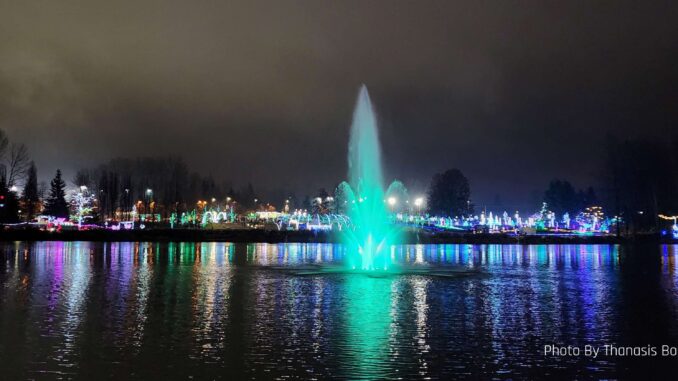
A Lake That Shines in Winter
Nestled in the heart of Coquitlam, British Columbia, Canada, Lake Lafarge is a year-round haven of calm — but in winter, it transforms into something truly magical.
As December approaches, the lake becomes the centerpiece of one of Metro Vancouver’s most beloved seasonal traditions: the Lights at Lafarge Christmas display.
What began as a local initiative has grown into a celebration of community, creativity, and the spirit of the holidays.
From Quarry to Community Gem
Long before it sparkled with Christmas lights, Lake Lafarge had a very different purpose.
Once a gravel quarry operated by the Lafarge Company, the site was later restored and transformed into a beautiful urban park.
The lake was reborn as part of the Town Centre Park project in Coquitlam — a vision to reclaim industrial land for recreation, wildlife, and public life.
By the late 20th century, the area had become a favorite gathering place for families, runners, and nature lovers alike.
The Birth of a Winter Tradition
The story of Christmas at Lake Lafarge began in the early 2000s, when the City of Coquitlam sought to create a festive event that brought people together.
What started as a modest holiday display grew each year, eventually blossoming into Lights at Lafarge, one of the largest free light displays in British Columbia, Canada.
The circular walking trail around the lake became a luminous pathway, adorned with glowing trees, floating ornaments, and shimmering reflections on the water.
It quickly became a local symbol of joy and connection.
Lights, Reflections, and Community
Each winter, volunteers, artists, and city crews work for weeks to prepare the display.
Over 100,000 lights illuminate the lakeside trail, turning the park into a glowing wonderland.
Families stroll beneath arches of light, couples take photos by the water, and the air fills with laughter and warmth despite the cold.
The reflections of color dancing across the still surface of Lake Lafarge capture the essence of Christmas in British Columbia — peaceful, bright, and inclusive.
More Than Just Lights
While the lights are the main attraction, the event also embodies the deeper meaning of community.
Food trucks, choirs, and cultural performances often accompany the festival, celebrating Coquitlam’s diversity.
It’s a space where different traditions meet under a shared canopy of light.
For many residents, a walk around Lake Lafarge at Christmas has become a cherished annual ritual — a moment to pause, reflect, and reconnect.
A Symbol of Renewal and Hope
The transformation of Lake Lafarge from an industrial site to a beloved cultural landmark mirrors the spirit of renewal at the heart of the holiday season.
Each December, as lights return to the lake, so does a sense of optimism and gratitude.
In a world that often moves too fast, the glow of the waterfront reminds visitors to slow down, breathe, and appreciate the simple beauty of shared moments.
The lake’s calm surface becomes a mirror not only for lights, but for the community’s heart.
The Magic of a Canadian Christmas
There is something uniquely West Coast about celebrating Christmas by the water.
Surrounded by mountains and gentle mist, Lake Lafarge in Coquitlam, British Columbia, Canada, reflects the region’s connection between nature and celebration.
Unlike snowy scenes elsewhere, this is a holiday defined by rain, light, and resilience — proof that beauty shines in every season.
It’s an experience that feels both timeless and local, a reminder of why British Columbia is often called the province of light and life.
In Reflection
The story of Lake Lafarge in British Columbia at Christmas is one of transformation, unity, and wonder.
From gravel pit to glowing lake, it stands as a symbol of what communities can create when imagination and togetherness meet.
Each year, the lights remind visitors that joy can grow from the most unexpected places — and that even in winter’s darkness, there is always light to be found.
A perfect reflection of British Columbia’s spirit — bright, welcoming, and endlessly inspiring.
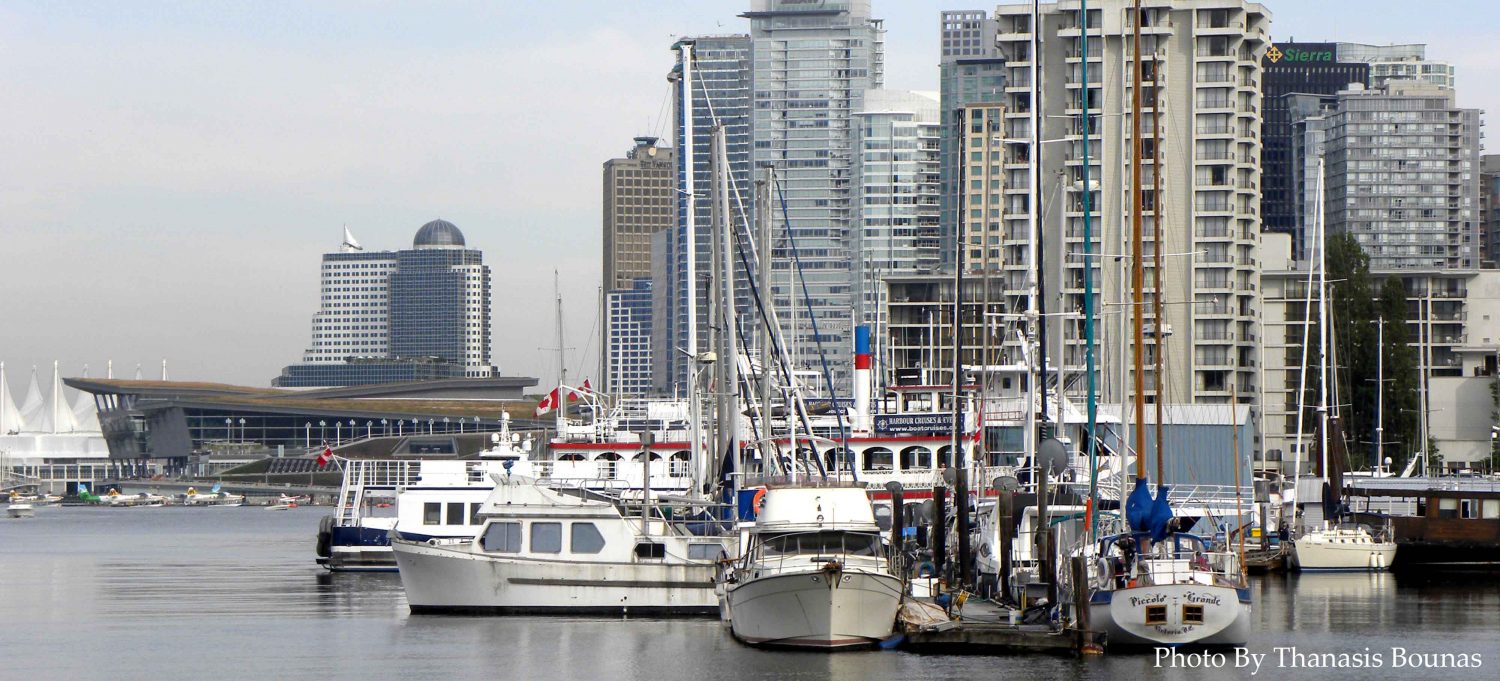
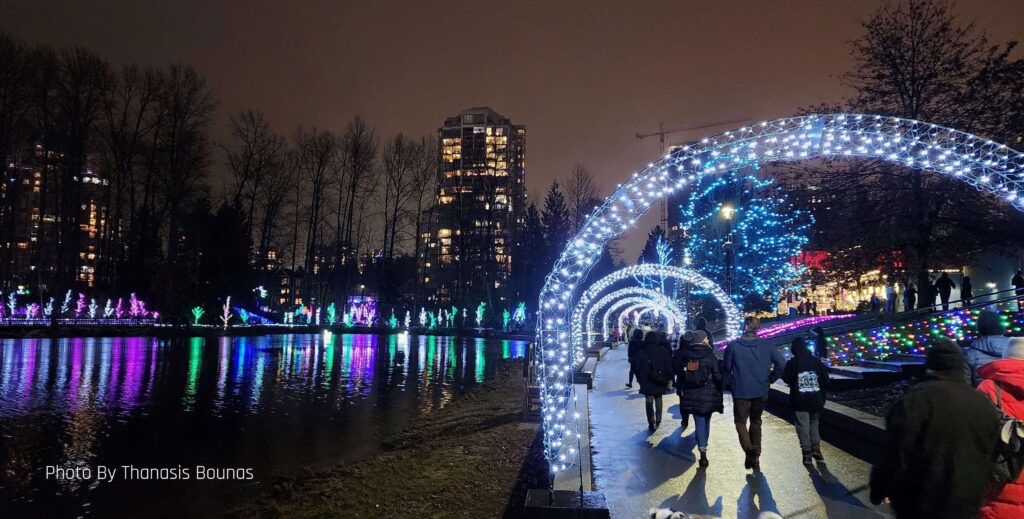
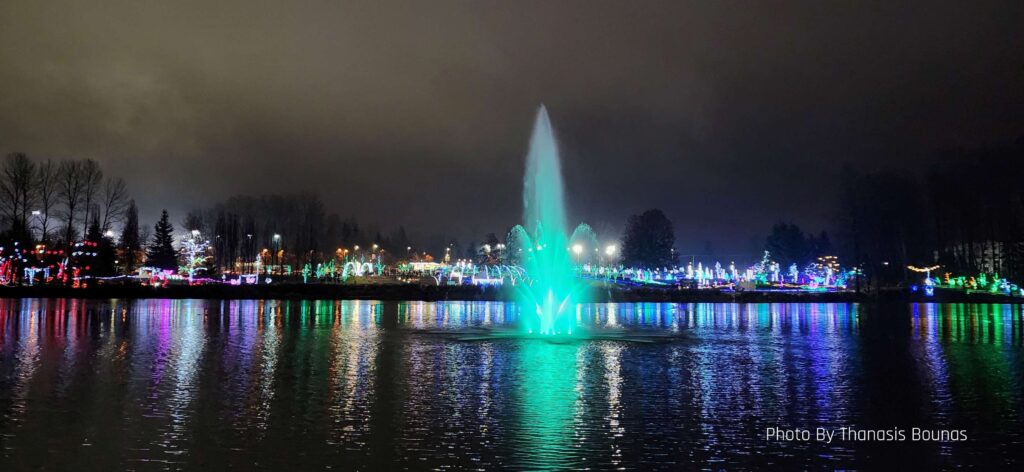
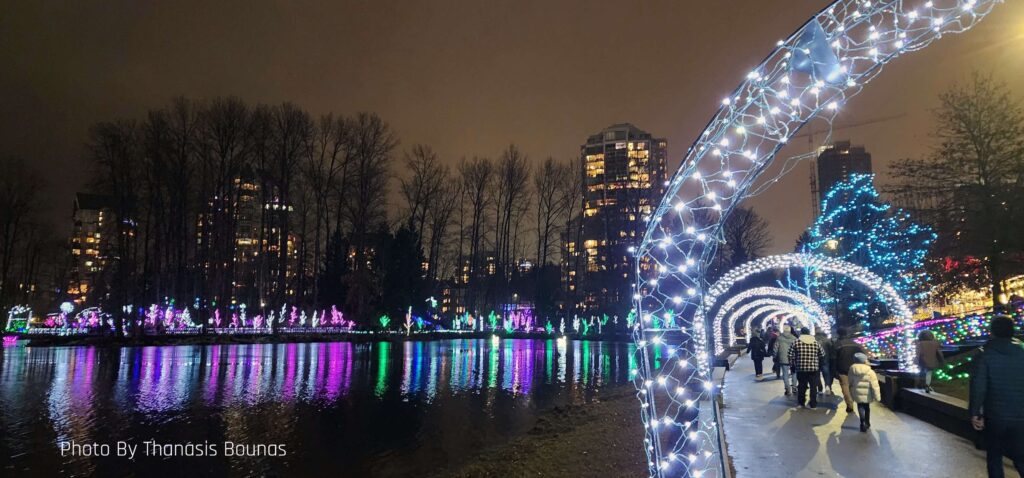
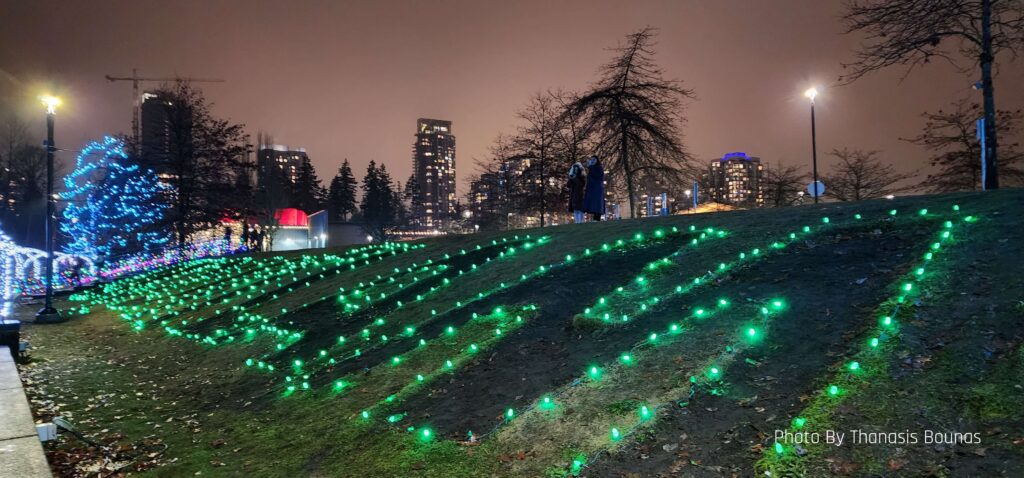
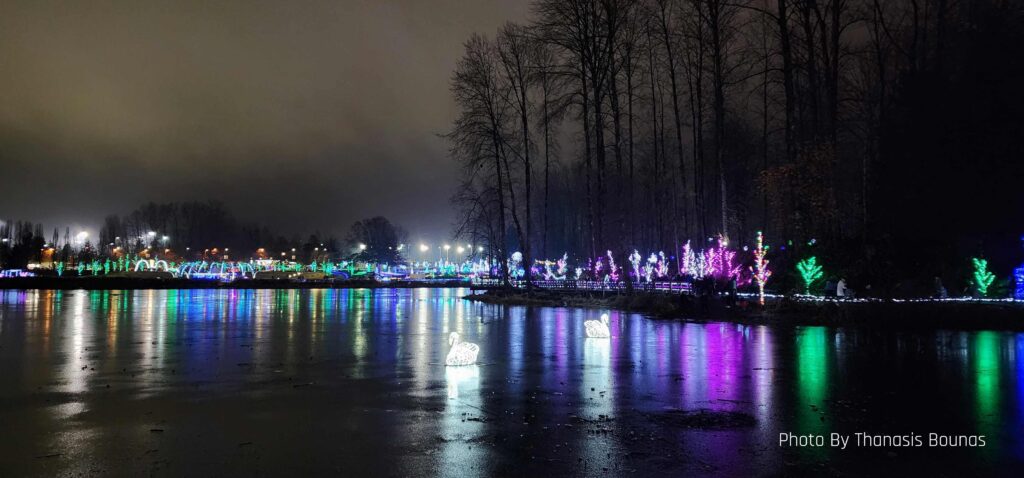
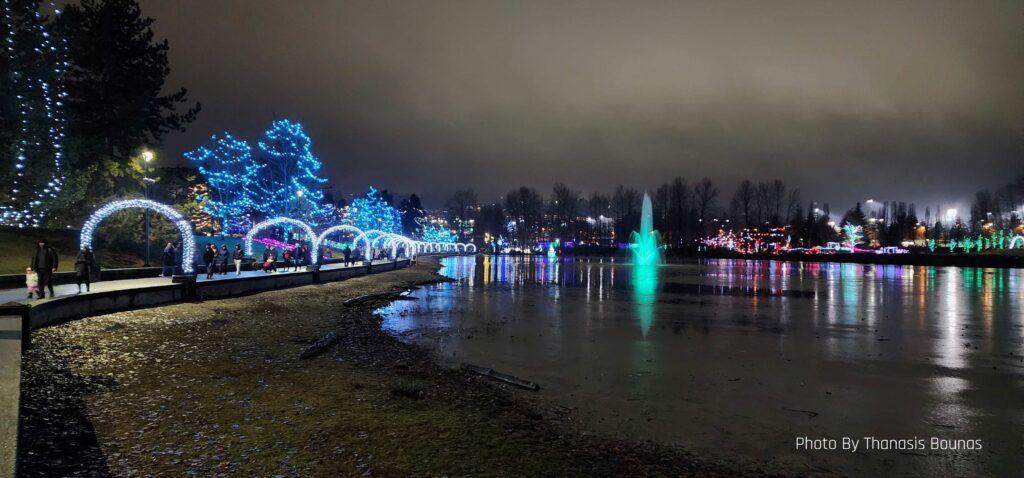
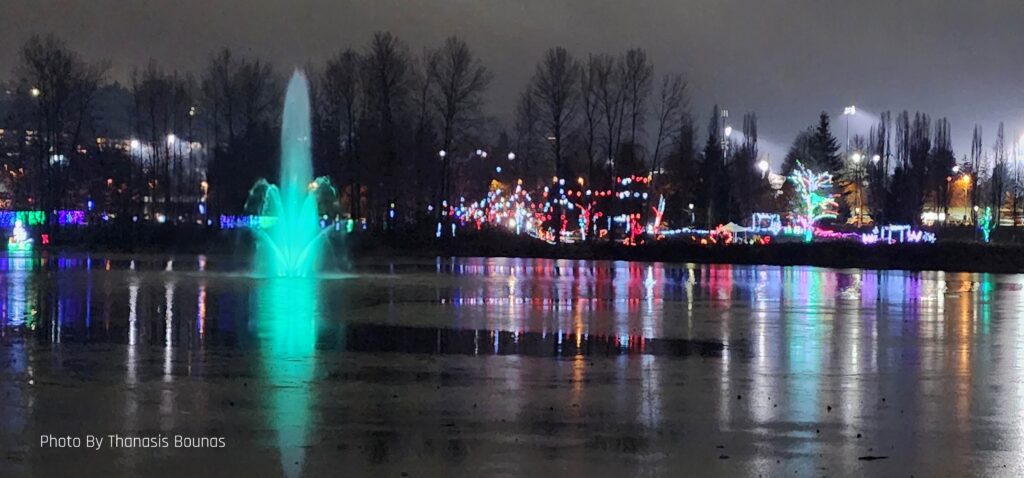
Be the first to comment